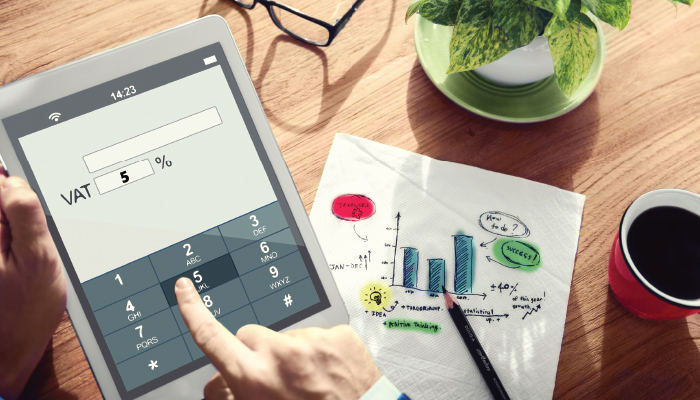
Muscat: Economic analysts in Oman have welcomed the decision to impose Value Added Tax (VAT) in the Sultanate, as it will provide a permanent, reliable revenue stream for the government to maintain and develop infrastructure to benefit the people and economy.
The arrival of VAT was done through Royal Decree No. 121/2020, which concerns the promulgation of the Value Added Tax Law, which is to be published in the Official Gazette and enforced 180 days after its date of publication.
Bringing in VAT will help provide the country with the funds it needs to expand its economy and provide help to those who have been affected by the COVID-19 pandemic, said Dr Mohammed Al Wardi, an economic analyst in Oman.
“This is a critical time for Oman’s public and private sector, because of the coronavirus, and the decline in oil prices, which has affected spending capabilities,” he said. “This tax is imposed on every stage of the manufacturing and procurement process for a company, but it is not cumulative, so the consumer will only pay the final five percent of the tax rate.
“Manufacturers and merchants will be compensated for the tax for their goods they paid as VAT to their suppliers, also called input tax,” added Al Wardi. “For example, to make a bed, a carpenter will buy wood from a supplier, and pay five per cent tax on it. When he sells this bed, the customer will pay him five percent VAT, which he will then send to the government, who will compensate him for the tax he pays to the agent.”
Plans to introduce VAT came after the signing of the Unified VAT Agreement which was agreed upon by Oman and the other five members of the GCC: Qatar, Saudi Arabia, the UAE, Bahrain and Kuwait. The agreement acts as a basis for domestic rules regarding VAT. However, small-scale enterprises will not be immediately affected by it.
“VAT will help supply the state treasury to meet its deficit and debt obligations, help diversify Oman’s income away from oil, and strengthen the Sultanate’s competitiveness levels and raise its sovereign rating,” said Al Wardi.
“This will also lead to reduction of unnecessary domestic consumption and a focus on exports, as these are not taxed under VAT.”
Dr Syed Mujahid Hussain, the head of the Department of Economics and Finance at the College of Economics and Political Science at Sultan Qaboos University, said the rate of VAT in Oman was among the lowest in the world, and would not affect the cost of living among people all that much.
“I used to previously live in Europe, where the VAT attached to companies was as high as 30 percent, so compared to that, five percent is very little,” he said.
“Western countries fund a lot of their public services through taxation, such as income tax, corporate tax, and value-added tax, so Oman and the other GCC countries are also looking to fund their works through this mode of taxation.”
According to Oman’s Tax Authority, Oman’s VAT rate is at par with the United Arab Emirates, and significantly lower than the tax rates levied in Australia (10 per cent), Egypt (14 per cent), Turkey (18 per cent), Germany (19 per cent), France, and the UK (both 20 per cent).
“VAT is not a direct source of income in that it will be put into the economy, but it will be used by the government to fund their services and their programmes, some of which will be used for social and economic development,” added Hussain.
“This might affect people’s spending habits a bit, because some of them will feel the pinch VAT puts on them, but even then, it is far lower than it is in other countries, so the impact felt won’t be that high.
“What this will do is provide the government a steady and guaranteed stream of income,” he said.
“This will decrease their dependence on revenue made from economic exports. Many of the GCC countries receive their primary source of income through the export of fossil fuels such as oil and gas, so this provides one of many possible alternative revenue streams.”
Adding to this, Dr Haider Al Lawati, an economic researcher, said, “In introducing VAT, the Gulf countries have shown that they are indeed keen on diversifying their economies away from oil and gas, with the wealth generated from citizens and residents being a key source of income.
“Additional taxes will help budgets of these countries centre not just around the products they create, which are primarily related to oil and gas, but on the wealth generated by people within the country as well.”